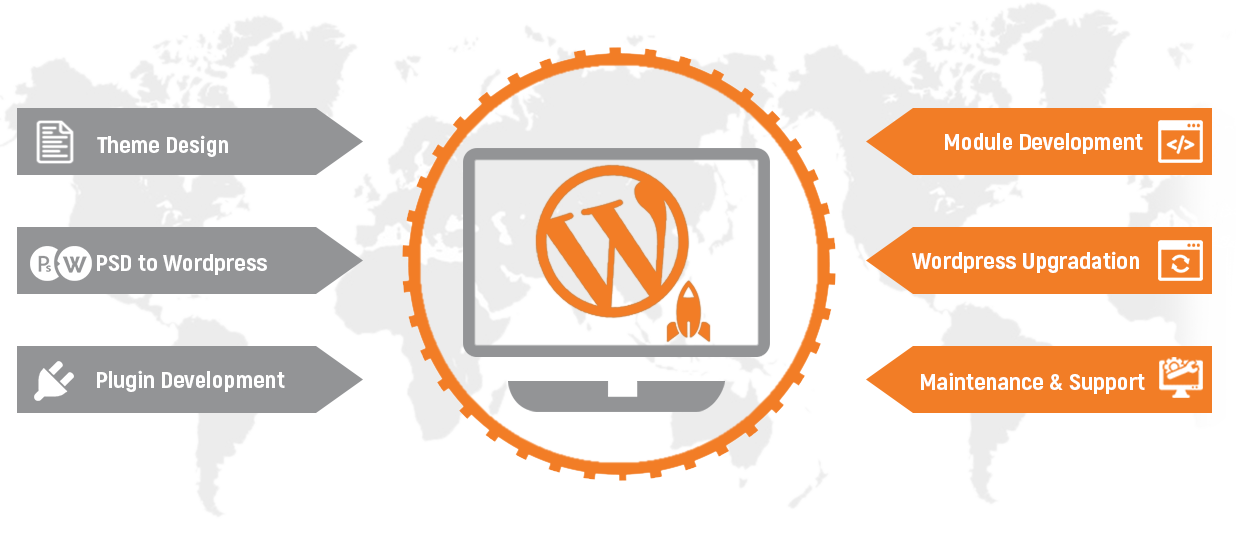5 Easy Steps to Create a WordPress Website.
Are you considering creating to build a WordPress website? Starting a WordPress website can be frightening, especially if you are not technically savvy. Do not be alarmed; you are not alone. After assisting over 350,000 individuals in building a WordPress website using WordPress, we decided to produce the most complete step-by-step guide available on how to create a website without learning to code. This handbook is appropriate for users of all ages and abilities. However, if you require assistance, you can hire WordPress developers from Web Development India for free website setup assistance. They have expert team of dedicated and expert WordPress developers.

If you wish to create a website on your own, please continue reading our step-by-step instruction on how to create a WordPress website. This is a high-level overview of all the steps in this guide, from beginning to end. How to locate and register a free domain name. Selecting the finest web hosting service. Besides, you can contact web development India a leading and top rated web development company with expert and professional WordPress developers to take on any task no matter how complex it is .
Step 1: Configuration
One of the most typical errors made by novices is selecting the incorrect website platform. Fortunately, you are here, which means you will not make that error.
For the majority of users, a self-hosted WordPress.org site is ideal. It has thousands of styles and add-ons that let you to create virtually any type of website you can imagine. For additional information on this subject, visit our tutorial on why you should use WordPress. WordPress is completely free to download and use to create any type of website.
If WordPress is available for free, where does the cost come from?
WordPress is free since you will be responsible for obtaining your own domain name and hosting, both of which are not free. For additional information on this subject, visit our article why is WordPress free?
A domain name is the internet address for your website. This is the address that your users will enter into their browsers to access your site (For example, wpbeginner.com or google.com). Following that, you'll require website hosting. Hosting is required for all websites on the internet. This will serve as the internet home for your website.
A domain name normally costs $14.99 per year, while hosting begins at $7.99 per month.
Step 2. Download and install WordPress
On the dashboard of your hosting account, you'll see a plethora of icons for doing various tasks (cPanel). You will never have to utilize 95% of them, so you may safely disregard them. In cPanel, scroll down to the website section and click on the WordPress icon. You will now see the WordPress Quick Install screen on the Bluehost Marketplace. To proceed, click the 'Get Started' button.
On the following screen, you will be prompted to enter the domain name for the WordPress installation. From the drop-down menu, select your domain and then click.
Step 3: Decide on a Theme
A WordPress theme is responsible for the aesthetic design of your WordPress site. WordPress themes are professionally created templates that you may use to customize the appearance of your website. Each WordPress site comes pre-installed with a basic theme. If you visit your website, it will seem as follows.
Step 4: Complete Your Website's Content
WordPress includes two pre-defined content types: posts and pages. A blog's posts are organized in reverse chronological order (newer items displayed first). By contrast, pages are intended to include static "one-off" material such as your about page, contact page, or privacy statement.
By default, WordPress displays your blog articles on your website's front page. You can adjust this and have WordPress display any page as your website's home page (we'll demonstrate how to do so later in this article).
You can divide your blog or news section into a different page. Indeed, you may construct a website entirely without a blog area. After that, let's begin adding content to your website.
To begin, you'll add a few pages to your WordPress site. Don't worry if you don't currently have enough content for these pages. They are always editable and up to date.
Step 5: Tailoring and Fine-Tuning Your Website
After you've developed some content for your website, you'll be able to personalize and present it all on your website.
You must navigate to the WordPress admin area's Settings » Reading page. Select the static front page from the 'Front page displays' option and then the 'Pages' you generated earlier for your home and blog pages.
Don't forget to save your changes by clicking the 'Save Changes' button at the bottom of the page. WordPress will now use the 'Home' page as the front page of your site and the 'Blog' page to display your blog posts. Modify the site's title and tagline
You get to choose the title of your site during installation. WordPress inserts a tag line to the title of your site that reads 'Just another WordPress site'. You can edit the title and tagline of your site at any moment by visiting the Settings » General page.

Comments